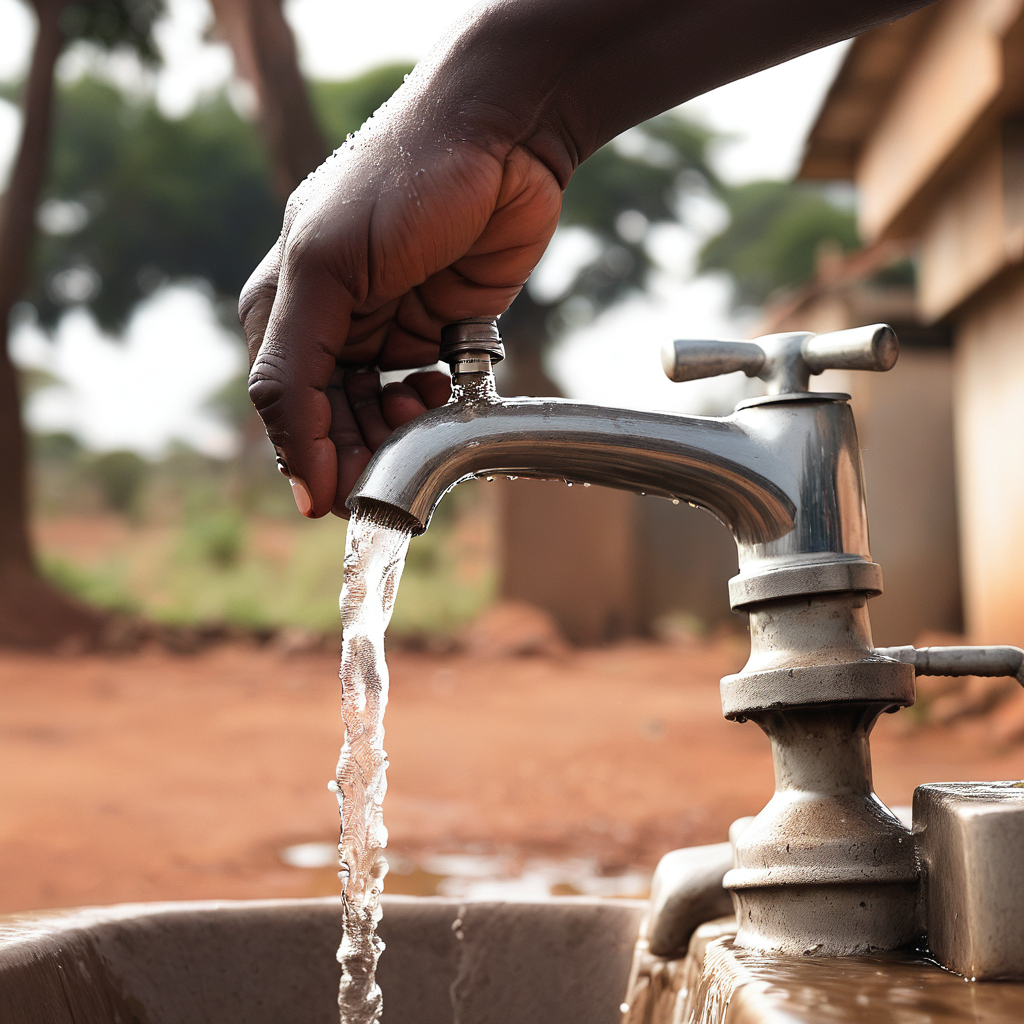Tshwane Moves to Restore Water in Hammanskraal Amid Pipeline Challenges
A key development in the water recovery initiative is the handover of Module 2 of the Klipdrift Water Treatment Works to the City of Tshwane on 29 June 2025.

- Country:
- South Africa
The City of Tshwane, in collaboration with the Department of Water and Sanitation (DWS) and the Magalies Water Board (MW), has intensified efforts to restore a safe and consistent water supply to the Hammanskraal area following ongoing disruptions that have left thousands of residents without reliable access to clean water.
The renewed action comes in response to mounting community frustration, particularly in Phase Two target areas, which include Majaneng (east of Makapanstad Road), Kudube Units 1, 2, 3, 6, 10, Unit D, and the Jubilee Tower, Jubilee Direct, and Dominican Tower zones.
Module 2 of Klipdrift Plant Commissioned Amid Supply Setbacks
A key development in the water recovery initiative is the handover of Module 2 of the Klipdrift Water Treatment Works to the City of Tshwane on 29 June 2025. The new module has a design capacity to produce 12.5 megalitres of treated water per day and is critical in addressing Hammanskraal’s long-standing water issues.
However, delays in completing the permanent pipeline from Babelegi to the Temba Reservoir forced authorities to divert water through an aging and temporary line, known to suffer from frequent leaks and lower-than-expected delivery volumes.
“The project partners have resolved to expedite the completion of the main planned pipeline,” the DWS said in a statement. “In the interim, the older pipeline is being used to provide intermittent supply for flushing purposes.”
Emergency Relief and Interim Measures
To bridge the current supply gap, the City of Tshwane has deployed additional water tankers to the affected communities. A detailed tanker schedule will be distributed to residents to ensure continued access to water until the permanent system is fully operational.
Authorities confirmed a target date in the second week of August 2025 to restore full water services to all impacted zones, provided that final system testing and pipeline adjustments proceed as scheduled.
Key Restoration Measures Underway
Several technical and logistical interventions have been launched to accelerate the water restoration process:
-
Completion of the Permanent Babelegi–Temba Pipeline: Construction of the pipeline is ongoing and, once completed, will significantly increase water delivery volumes and stability. Final commissioning and water quality tests will be conducted before the pipeline becomes fully operational.
-
Upgrades to the Bosplaas Line: Currently delivering an average of 6.3 million litres per day, the Bosplaas line is being optimized to increase flow and assist in system flushing, which remains a critical prerequisite for clean water distribution.
-
System Flushing and Water Quality Testing: Over 90% of the water network flushing process has been completed. Once sufficient volumes are available, the final flushing should be completed within a week, assuming favorable conditions.
Despite progress, the Department has advised against reactivating the Temba Water Treatment Works to boost supply prematurely, warning that doing so could reverse gains already made and delay completion until mid-September 2025.
Health Advisory: Water Not Yet Safe for Drinking
While the water currently produced by Modules 1 and 2 meets minimum safety standards (SANS 241:2015) and is being used to clean the system, residents in the affected zones, especially those under Module 2, are urged not to drink water directly from taps until an official announcement confirms its potability.
“We recognize the seriousness of the situation and assure the Hammanskraal community that all reasonable efforts are being made to restore a consistent and safe water supply,” the Department of Water and Sanitation said. “We sincerely apologize for the inconvenience and hardship caused.”
Long-Term Vision for Sustainable Supply
The current initiative forms part of a broader infrastructure upgrade strategy in Tshwane, aiming not just to resolve the Hammanskraal crisis but also to build long-term water resilience in the city’s northern communities. With increased intergovernmental cooperation, improved infrastructure planning, and enhanced community communication, authorities hope to eliminate recurring water shortages in the region.
Residents are encouraged to remain patient and continue engaging with municipal officials, as every effort is being made to deliver safe, equitable, and reliable water services.










